SUMMARY
This is AI generated summarization, which may have errors. For context, always refer to the full article.

The following information is from the German Embassy Manila.
Germany introduces the Chancenkarte or the Opportunity Card, a new residence permit to go to Germany to look for a job.
It is now open either to skilled workers with degrees recognized in Germany or on a points-based system for workers with a degree that is not yet recognized. If you can find a qualified job you can live and work in Germany.
General information
The Opportunity Card is a visa for up to twelve months to look for a job in Germany either for: 1) skilled workers recognized in Germany, and 2) educated job seekers who fulfill a points system.
- Recognized skilled workers need proof of full recognition of their foreign qualification in Germany.
- Job seekers with a university degree or a training qualification of at least two years that is only partially recognized in Germany or not yet recognized need German language skills at A1 or English language skills at B2 level, as well as proof of their partial recognition or confirmation of their foreign qualification. They must achieve 6 points in the following points system.
Points can be achieved for the following characteristics:
- Partial recognition of the qualification in Germany: 4 points
- Advanced language skills:
- German language skills B2: 3 points, or
- German language skills B1: 2 points, or
- German language skills A2: 1 point, or
- English language skills C1: 1 point.
- Professional experience in the desired field
- of 5 years in the last 7 years: 3 points, or
- of 3 years in the last 5 years: 2 points
- Professional qualification in a shortage occupation, e.g. as a natural scientist, mathematician, engineer, doctor, ICT specialist, a complete list of occupations can be found here: 1 point
- Age:
- Under 35 years of age: 2 points,
- Between 35 and 40 years of age: 1 point
- Previous stay in Germany in the last 5 years of 6 months uninterrupted: 1 point
- Spouse applies for the opportunity card together and has achieved at least 6 points themselves: 1 point
In addition to looking for a job, the Opportunity Card entitles you to part-time employment of up to 20 hours per calendar week and trial employment for a maximum of two working weeks each. When you have found an employer and a fulltime job in Germany, you can directly apply for your residence permit and work permit at the locally competent foreigner’s authority in Germany.
Please submit the following documents for your application, one original with one copy of each original in paper format A4:
- Your valid passport
- One print-out of your duly filled and signed application form
- Two biometrical passport photos, one of which glued to the application forms
- Visa fee 75 Euro, payable in PHP
- Diploma
- For recognized skilled workers: Proof of the equivalence of your degree with a German degree, e.g. the KMK ZAB recognition letter with confirmation of the equivalence of the university degree or the two Anabin extracts for university (H+) and degree (equivalent to the German university degree) or the recognition notice from the IHK FOSA for vocational training degrees or the notice from the relevant state authority for regulated professions.
- For applicants with partial recognition of their foreign degree: corresponding notice with partial recognition of the equivalence of the degree by
- the KMK ZAB (for academic professions in Germany), OR
- the FOSA (for vocational professions in Germany), OR
- the relevant state authority (for all regulated professions in Germany)
- For applicants without German recognition of their degree: confirmation from the competent German body (KMK ZAB) that the qualification requirements are met
- Curriculum vitae in tabular form
- Motivation letter
- Proof of finance:
- Formal obligation according to §§ 66-68 AufenthG with a confirmation of the declarant’s financial capacity by the local Immigration (Ausländerbehörde)
- OR proof of a blocked bank account in your name with an amount of 1027 Euro per months of your stay in Germany. For further information concerning a blocked account in Germany, please see here.
- Work contract for a partial employment of up to 20 hours per week that covers your cost of living in Germany
- For applicants with partial recognition or without recognition of their degree: German language certificate A1 or higher from an ALTE-certified language school (Goethe Institute, ÖSD, telc, TestDaF, ECL) or English language certificate B2 or higher from an ALTE-certified language school (alternatively TOEFL with over 87 points). The certificate should not be older than one year.
- For applicants with partial recognition or without recognition of their degree: Proof of professional experience (employment references), if available
- For applicants with partial recognition or without recognition of their degree: Proof of previous stay in Germany (employment contracts, rental contracts, old passports with visas, proof of studies, etc.), if available
- Proof of planned accommodation in Germany
- Proof of health insurance coverage
- incoming health insurance in type and scope of health insurance coverage corresponding to that of a statutory health insurance, covering your whole stay in Germany
Your application must be submitted personally at the German Embassy. Once you have obtained all necessary documents, please register for an appointment here.
Please note:
Incomplete applications will be decided by the Embassy based on the documents that were submitted, and may be rejected.
The Service Centre for Professional Recognition can assist you in your professional recognition procedure. For further information, please see here.
Foreign documents which neither were issued in the Philippines nor in Germany must be legalized or have an apostille.
Documents that are not in German or English language need to be translated by a recognized translator. For further information, please see here.
Please note that the Embassy can request further documents. – Rappler.com
Add a comment
How does this make you feel?





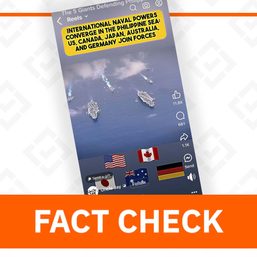
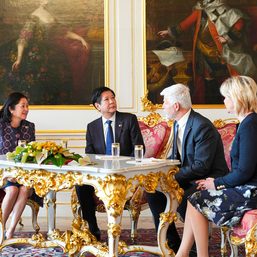
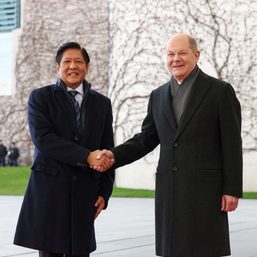
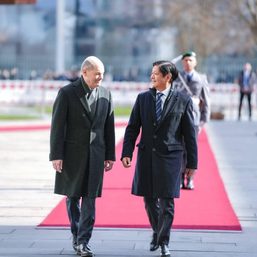

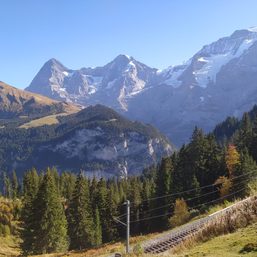

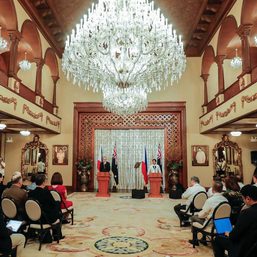
There are no comments yet. Add your comment to start the conversation.